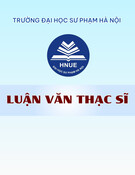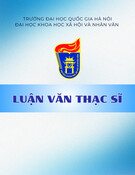
MINISTRY OF EDUCATION AND TRAINING
HUE UNIVERSITY
UNIVERSITY OF FOREIGN LANGUAGES
BÙI PHÚ HƯNG
TEACHING ENGLISH PREPOSITIONS:
A COGNITIVE LINGUISTIC APPROACH
DOCTOR OF PHILOSOPHY THESIS IN THEORY
AND METHODOLOGY OF ENGLISH LANGUAGE TEACHING
HUE, 2019

MINISTRY OF EDUCATION AND TRAINING
HUE UNIVERSITY
UNIVERSITY OF FOREIGN LANGUAGES
BÙI PHÚ HƯNG
TEACHING ENGLISH PREPOSITIONS:
A COGNITIVE LINGUISTIC APPROACH
DOCTOR OF PHILOSOPHY THESIS IN THEORY
AND METHODOLOGY OF ENGLISH LANGUAGE TEACHING
CODE: 9 14 01 11
SUPERVISORS:
Assoc. Prof. Trương Viên, PhD
Assoc. Prof. Nguyễn Ngọc Vũ, PhD
HUE, 2019

i
STATEMENT OF AUTHORSHIP
I certify my authorship of the PhD thesis submitted today entitled:
“TEACHING ENGLISH PREPOSITIONS: A COGNITIVE
LINGUISTIC APPROACH”
for the degree of Doctor of Education, is the result of my own research,
except where otherwise acknowledged, and that this thesis has not been submitted
for a higher degree at any other institution. To the best of my knowledge, the thesis
contains no material previously published or written by other people except where
the reference is made in the thesis itself.
Hue, ……………………………, 2018
Author’s signature
Bùi Phú Hưng

ii
ABSTRACT
The present study aimed to investigate the effects of applying cognitive
linguistics (CL) to teaching the spatial and metaphorical senses of English
prepositions above, among, at, behind, beside, between, in, in front of, on and
under. It made attempts to apply the basic concepts in cognitive linguistics,
including embodiment theory, image schemas theory, conceptual metaphor theory
and domain mapping theory. Also, the integrated text and picture comprehension
(ITPC) model was applied to frame the class activities. A pretest-posttest between-
group research design was adopted. The results of the pretest and pre-questionnaire
were used to select student participants who were then divided into two different
groups: cognitive group and traditional group. The findings revealed that the
cognitive group (M=27.00) outperformed the traditional group (M=22.36) in the
posttest in terms of both the spatial and metaphorical meanings.
The cognitive group participants also responded that they appreciated the
CL-based teaching of the prepositions more than the pedagogical applications
which their former teachers had previously applied in terms of both the spatial and
metaphorical meanings. Six out of 25 cognitive members responded that the teacher
should have added something fun to make the class more interested in the lesson.
Most of the participants believed that CL-based teaching was appropriate and
admitted that CL-based teaching had more positive effects on their knowledge of
the spatial meanings than that of the metaphorical meanings.
The findings suggest that future studies and practices in ELT which would
like to apply cognitive linguistics in EFL (English as a foreign language) classroom
could include songs or games in the post-teaching stage to make the class more
interesting. Future research could also apply cognitive linguistics to teaching other
prepositions in other contexts and employ a delayed posttest to measure EFL
students’ retention of knowledge.

iii
ACKNOWLEDGEMENTS
To conduct this doctoral thesis, I received much guidance and assistance
from my supervisors, the academic panel at Hue University of Foreign Languages –
Hue University, friends and students.
First of all, my great sincere thanks would go to my supervisors, Assoc. Prof.
Dr. Truong Vien at Hue University and Assoc. Prof. Dr. Nguyen Ngoc Vu at Ho
Chi Minh City University of Education. They constantly motivated me to complete
this thesis punctually and gave me great advice on how to conduct this doctoral
thesis. I really appreciated their supervision with theoretical background in
cognitive linguistics.
I also owe thanks to Assoc. Prof. Dr. Tran Van Phuoc, Assoc. Prof. Dr. Le
Pham Hoai Huong, Assoc. Prof. Dr. Pham Thi Hong Nhung, Dr. Ton Nu Nhu
Huong, Dr. Truong Bach Le and other academic panelists at University of Foreign
Languages – Hue University for their advice on every single stage of conducting
this doctoral dissertation.
I am very grateful to all the teachers and student participants for their
assistance with participating in this study. Without them, there would have been no
chance for this PhD thesis to be completed.
My appreciation is extended to my family and friends for their support. They
recommended large resources of materials and shared my cheers and stress from
this thesis.


























